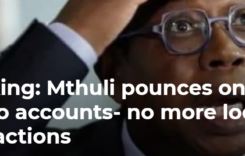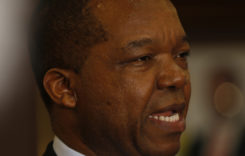By Earnest Mudzengi
There has been extensive media coverage on Zimbabwe’s Private and Voluntary Organizations (PVOs) Amendment Bill.
But some critical questions pertaining to the function and sustainability of PVOs still need to be addressed: Should PVOs, also referred to as Non-Governmental Organizations (NGOs) or Non-Profit Organizations be regulated? If there is to be regulation, what form should it take and what purpose should it serve? What is happening in other jurisdictions with respect to the regulation of NGOs?
What is the best way to resolve the standoff between the government and NGOs over the Bill?
On whether or not NGOs must be regulated, Grace Chikoto and Keledini Uzochukwa, in a study on civil society in Zimbabwe and Nigeria make a critical observation that “sovereign nations have the right to regulate activities and operations of civil society organizations in their jurisdiction.” This observation is in light of another by Ann Marie Clark, a development analyst who says CSOs have grown in influence to an extent that they can engage in non-governmental diplomacy that may diminish the role and stature of the state at national and international levels.
Professor Jude Howell, Director of the Non-Governmental Public Research Programme at the London School of Economics is of the view that NGOs must be regulated “to check effects of the scramble for resources that pit one NGO against the other”, hampering solidarity and collective campaigns that promote inclusive development and social transformation.
Money laundering argument
There is also the imperative of regulating the operations of NGOs as a way of ensuring that they do not become conduits for money laundering and financing of terrorism. This, in line with Zimbabwe’s obligations as a member of the Financial Action Taskforce (FATF), is presented in the memorandum announcing the PVO Amendment Bill as the most immediate reason for the promulgation of the Bill. Other reasons for the Bill are presented as to enhance efficient regulation of PVOs and to prevent them from political lobbying.
These sound like valid reasons for amending Zimbabwe’s current PVO Act. However, they need to be contrasted with what has been presented as democratic and developmental ideals in the regulation and function of NGOs. While some agitate for the self-regulation of NGOs, Maria Beatriz, a non-profit law specialist says there has to be a balance between self-regulation and statutory regulation of NGOs. As Beatriz argues, NGOs ought not to be an extension of government but should be helped in the “creation of their own spaces for access to public resources and participation in the integral formulation of public policies.”
Non-partisan outlook?
The idea derived from Jürgen Habermas, a critical theorist is that NGOs must be part of a civil society that exists as a public sphere, a free and neutral space that protects citizens from negative effects emanating from operations and dealings of political and business actors. As such NGOs ought to be non-partisan in their outlook, programmes and activities. They also need not be oriented towards corporate tendencies that betray public interest.
In upholding these values or otherwise, governments across the world have come up with laws and policy frameworks that regulate NGOs. As said by Chikoto and Uzochukwa nonprofits in the United States are required to register with their respective Secretaries of State.
However, registration is transparent and not cumbersome. Registration and state monitoring of nonprofits in the United States also comes with benefits that include tax exemptions, access to grants, crowdfunding eligibility and legal protection. With respect to Israel, a country widely considered a “First World” democracy, Maryam Zarnegar Deloffre, Professor of International Affairs at George Washington University makes a keen observation of how NGOs critical of government, particularly its continued occupation of Palestinian territories, are labeled “disloyal” and subjected to severe operational more restrictions.
While China is widely considered among the most restrictive with respect to freedom of association, Leigh Anne Russel, founder of Nestworks, an NGO operating in Shanghai says government regulations on registering NGOs have become easier.
Hard registration
Yet proposed amendments to the PVO Act stand to make it much more difficult to register NGOs in Zimbabwe. As evidenced by how most NGOs in the country have had to register as trusts, not PVOs, the current PVO Act is already restrictive. The proposed Amendment Bill will even make it more difficult as it also provides scope for curtailment of trusts that f government authorization for any “material change” in their operations. This includes changes to boards, management staff and programming, new funding sources and amendments to internal documents such as constitutions and Deeds of Trust. Government is also to have power to designate any PVO as “high risk” or “vulnerable” with respect to money laundering and abuse by terrorists. This excessive power, according to a joint report on the Bill by human rights promoting CSOs that include Zimbabwe Human Rights NGO Forum, Accountability Lab Zimbabwe and Southern Defenders, will allow government to revoke the registration or change the leadership of any NGOs deemed or classified by government as high risk.
As the report further states: “banning CSOs from engaging in political activities is a broad and vague concept that could include legitimate human rights activities.” This provision is against a background of how government perceives NGOs to be pursuing a regime change agenda. The political embeddedness of civil society in previous instances gives some credence to regime change claims, especially when one factors civil society’s co-habitation with the opposition Movement for Democratic Change (MDC) prior to the setting up of the inclusive government between the ruling ZANU PF and MDC in 2009. Government also continues to be miffed by civil society’s forefront role in the 2000 Constitutional Referendum that saw government’s sponsored draft constitution being rejected. Together with the adversarial relationship between governments and civil society, which is described by as a perennial feature in African politics, these developments account for the current state of hostility and polarization surrounding engagements over the PVO Amendment Bill.
What are the facts and figures?
Should this state of affairs persist, the Bill risks being enacted in its current form, a prospect that jeopardizes jobs and other economic benefits flowing from NGOs. A monetary policy statement released by the Reserve Bank of Zimbabwe (RBZ) early this year shows that NGOs stand as the third largest earner of foreign currency behind export earnings and forex remittances by Zimbabweans in the Diaspora. Up to 18,000 jobs, 1.2 percent of the country’s jobs that are accounted for by NGOs according to figures from Zimbabwe’s statistics agency (ZIMSTAT), are endangered.
The tourism industry also stands to suffer from further disturbances that the Bill poses to the operations of the NGO sector. According to African Sun (Limited), a key hospitality group, conferencing business from NGOs has been helping city and country hotels to sail through tough COVID-19 times. This is over and above contribution to tax revenues and numerous poverty alleviation and social transformation schemes by NGOs.
As observed through a policy brief compiled by Dr Tendai Murisa and Ebenezer Nobela of the SIVIO Institute, former President Mugabe’s legacy is also threatened as the enactment of the PVO Bill is set to adversely affect Community Share Ownership Trust schemes established through the former President’s Indigenization and Economic Empowerment policies. As SIVIO Institute further observes, the same applies to other community philanthropy organizations and initiatives such as community development trusts set by Zimbabweans in the Diaspora and other citizens to champion development in marginalized communities.
Confronted with the question of jobs, Monica Mutsvangwa, Minister of Information, Publicity and Broadcasting Services, recently told a post-cabinet media briefing that those who will lose jobs can go farming. As widely reported in both state and privately controlled media, Larry Mavima, the Minister of State for Midlands Province recently told an official gathering of heads of government departments that Zimbabwe does not need NGOs. “Let them go to Ukraine where there are people in need of their services. Here we are in a peaceful country. No one is bombing us,” Mavima is quoted to have said in remarks directed at NGOs.
This sort of mud-throwing diplomacy will not help Zimbabwe in its economic recovery attempts, including government’s ongoing attempts at reengaging the West.
Compromise solution
Both government and NGOs need to find each other to come with an alternative regulatory blueprint that advances the developmental interests of the entirety of Zimbabweans.
Author: Earnest Mudzengi is executive director of the Media Centre in Harare which offers freelance Zimbabwean journalists working space, facilities for Press Conferences and workshops and supports media development programmes in Zimbabwe.
Do you want to use our content? Click Here












